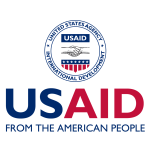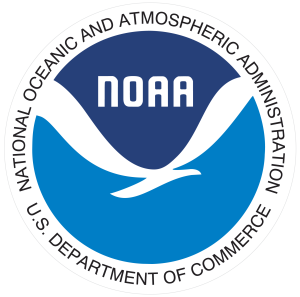El Niño 2015 Conference
Shared Experiences: 20 Years of Climate Services and Framing the Next Steps in the Research and Development for Climate Resilience
Tuesday, November 17 – Wednesday, November 18, 2015
8:00 am – 6:30 pm EDT
Monell Building
Columbia University at Lamont-Doherty Earth Observatory Campus
61 Route 9W, Palisades, NY 10964-8000
Conference Report | Conference Report (PDF) |
Watch Day 1 | Watch Day 2 | See All Videos |
Tuesday, November 17, 2015
Opening Remarks. Jerry Lengoasa, Deputy Secretary-General, WMO (Read by Maxx Dilley)
PANEL: 20 Years since the International Forum on Forecasting El Niño and Launching IRI (Moderated by Jim Buizer, University of Arizona)
- Michael Crow, President Arizona State University (via video)
- Mark Cane, Columbia University
- Mickey Glantz, University of Colorado
- Mike Hall, Retired NOAA.
Implications of a large El Niño event on global economy and development. Jeff Sachs, Director, Earth Institute – Columbia University
Update on 2015 El Niño event. Michelle L’Heureux, NOAA-Climate Prediction Center
Associated extreme climate impacts and their certainty. Adam Sobel, Columbia University
ENSO modeling and prediction: Evolution and Outstanding Challenges. Lisa Goddard, CLIVAR-WCRP; IRI, Columbia University
Overview structure of available ENSO information & coordination – from a WMO perspective. Maxx Dilley, WMO
PANEL: Overview structure of available ENSO information and coordination. Moderated by David Corcoran, formerly NYTimes Science Times
- Zinta Zommers, UNEP
- Richard Choularton, WFP
- Sezin Tokar, USAID/OFDA
- Stewart McCulloch, WorldVision International.
PANEL: Case Studies on current event information, plans as well as current and anticipated impacts. (Moderated by Simon Mason, IRI)
- Latin America: Rodney Martinez, Centro Internacional para la Investigación del Fenómeno de El Niño, Ecuador
- Peru: Ken Takahashi, Instituto Geofísico del Peru
- Caribbean: David Farrell, Caribbean Institute for Meteorology & Hydrology, Barbados
- Greater Horn of Africa: Guleid Artan, IGAD Climate Prediction & Applications Centre, Kenya
- India: Sulochana Gadgil, India Meteorological Department
- Philippines: Tony Lucero, Philippine Atmospheric, Geophysical and Astronomical Services Administration
PANEL/Plenary Discussion: Messaging on El Niño – How do we inform the public (who informs what public), and what do they hear? How has this evolved over the last 10-20 years? (Moderated by David Herring, NOAA)
- Journalists in developing countries. Patrick Luganda, Network Climate Journalists in the Greater Horn of Africa
- Societal perceptions of forecasts and risk. Mickey Glantz, University of Colorado
- Communicating climate information. Eric Roston, Bloomberg News
Wednesday, November 18, 2015
El Niño and Global Change. Marc Levy, CIESIN, Columbia University
PANEL: Sectoral impacts of El Niño – What have we learned since 1997-98. (Moderated by Roger Pulwarty, NOAA)
- Health: Madeleine Thomson, IRI
- Water: Upmanu Lall, Columbia Water Center, Columbia University
- Disasters: Carina Bachofen, Red Cross Red Crescent Climate Centre
- Energy: Alberto Troccoli, U. East Anglia
PANEL: El Niño 2015 Response Strategy – what is or should be in place. (Moderated by Heidi Cullen, Climate Central)
- Seasonal fire early warning system: Rizaldi Boer, CCROM-SEAP
- Regional actions and support network: Jen Stephens, UNDP
- Food Security: Amir Abdulla, World Food Programme
- Insurance: Megan Linkin, SwissRe
PANEL: What is needed to evolve science towards increased societal benefit? (Moderated by Francesco Fiondella, IRI, Columbia University)
- Climate: Simon Mason, IRI
- Process of developing climate services: Jim Buizer, University of Arizona
- Development Banks: Kanta Kumari, World Bank
- Social Sciences: Ed Carr, Clark University
- Agriculture: Andy Jarvis, CIAT
WCRP/CLIVAR efforts to understand El Niño in a changing climate. Eric Guilyardi, IPSL-France
The Intersection of El Niño and Climate Change – El Niño’s contribution to 2015 global temperature. Kevin Trenberth, NCAR
El Niño, ecosystems for & carbon. Miguel Angel Pinedo-Vasquez, EICES, Columbia University; CIFOR
PANEL: Young Scientists: exploring new ideas to connect research, the operational communities and the users: “reinventing climate services”
(Moderated by J. Michael Hall, Retired Director of NOAA’s Office of Global Programs)
- Teddy Allen (IRI)
- Ángel Muñoz (IRI)
- Aisha Muhammad (IRI)
- Roop Singh (IFRC Climate Centre)
Concluding summary. Maxx Dilley, WMO.
Wrap Up, Final Remarks. Kathy Jacobs and Lisa Goddard
Post-Summit discussion of the Organizing Committee: Synthesize key messages and agree on report structure.
Main Page | Attendance List | Full Agenda (PDF) | Posters
Other Sponsors:





You must be logged in to post a comment.